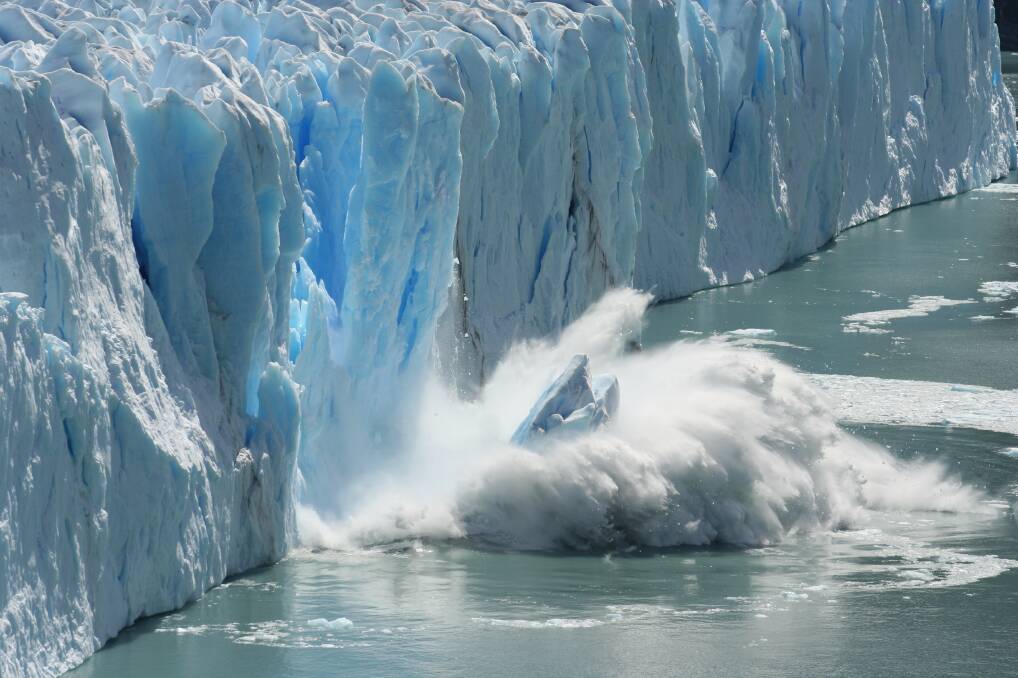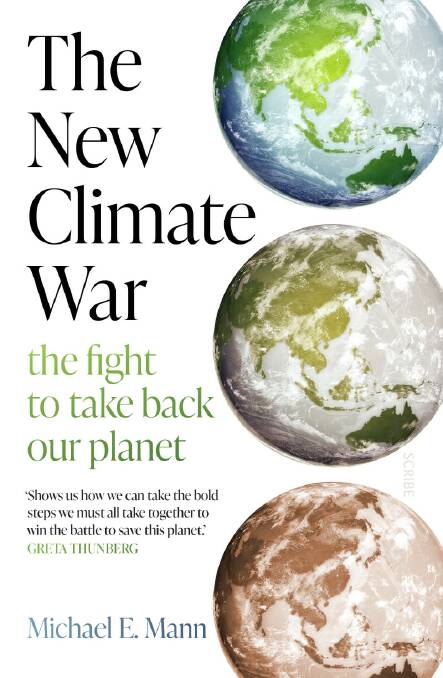
- The New Climate War, by Michael E. Mann. Scribe, $35.
The language of climate activism has changed. Gone are the days of fumbling white coats and patient protest. The new wave speaks of urgency, combat, desperation. Extinction rebellions and climate wars! It is an alarming picture, backed by an alarming reality.
Subscribe now for unlimited access.
or signup to continue reading
The challenge of climate activism has always been the invisibility of its demons - well, at least now that handicap is dissolving. The challenge of new climate activism will be translating the inflammatory urgency of their movement into something digestible and actionable. This is the concern of scientist and climate change activist Professor Michael E. Mann.
Mann is a notable figure in the debate from way back when. He was one of the three lead researchers behind the 1999 "Hockey Stick Graph" demonstrating the sharp rise in global mean temperature since the industrial revolution.
In his new book, the scientist is more the historian or sociologist - or even the marketer or economist - for The New Climate War: The fight to take back our planet isn't about science or climate projections. Instead, it is a book investigating the "secret war" of information between polluters - "the architects of misinformation", the "climate inactivists", and the vested interests - and science.

It is an opposition all too familiar these days. Indeed, Mann explores the environmental context as the proving ground of the sophisticated post-truth monster of the modern world. Though his focus is fairly narrowly directed to the climate debate, Mann's investigation of the evolution and increasing sophistication of this information war is revealing and relevant in contexts beyond climate.
Mann's central concern, though it often sounds softly in the background while louder themes trumpet, is that the new wave of climate activism should engage this "war" appropriately.
In early chapters, he considers the new and changing dynamics of anti-climate reform campaigns, noting, for example, that "the old climate war - the forces of denial have all but conceded defeat. But the new climate war - the war on action - is still actively being waged".
To this end, in later chapters, Mann examines the internal divisions of climate activism, and the own-goals it continually threatens to score.
Particularly interesting in this material is "climate doomism" - an honest response from the climate concerned that amounts to an inert and irrational "non-response", just as easily promoted by vested interests to protect a lucrative status quo.
Mann further considers how to make change through governments and markets to prevent approaching disaster, against the convulsions of vested interests.
Chapter five, for example, makes the case for action on climate change via market mechanisms, and dissects the concerted efforts acted out against such schemes in the public eye. It features, of course, a storied analysis of Australia's Emissions Trading Scheme experiment, and the ugly discourse into which it devolved. "Pricing", says the author, "isn't partisan".
"The fossil fuel industry has been granted the greatest market subsidy ever: the privilege to dump its waste products into the atmosphere at no charge. That's an unfair advantage over climate-friendly renewable energy in the playing field that is the global energy marketplace."
Further, for an American in a discussion of politics, Mann is pleasantly attentive to the Australian context. His points relate to Australia in more than just the sense of a demographic and political likeness to the US. Australia in fact bears the particular and odious distinction of receiving Mann's regular attention.
It appears that vivid moments like the 2019 bushfires, alongside our chequered history of climate policy and haggard discourse of conservation, have variously rendered Australia a global emblem for the dangers of climate change, as well as the fogey obstructions on the path to reform.
"It has become fashionable in climate discourse to use terms like 'catastrophe', 'emergency', and even 'extinction'. We must not allow the policing of language to be used as a wedge to divide us. But we cannot let words be used in a manner that robs us of our agency. Once again it is important to convey both urgency and agency in talking about the challenge we face."
Ultimately, Mann's tone is optimistic - as is pivotal, he maintains, for agency. The New Climate War is an enlightening exposé of something that many of us probably already took as given: vested financial interests are psychotic in their efforts to control the dialogue.
The book's reflections on the manipulation of public discourse and how to resist the unhelpful trends of modern thinking are not just interesting and varied, they are important.

